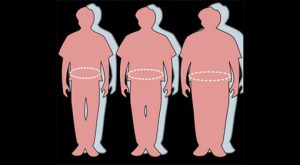Overweight And Obese Men More Likely Than Women To Underestimate Their Weight
 A recent study by researchers at the University of Illinois has determined that men who are overweight or obese are more likely than women to underestimate their actual weight.
A recent study by researchers at the University of Illinois has determined that men who are overweight or obese are more likely than women to underestimate their actual weight.
The study which involved collaboration between researchers at the University of Illinois and scientists at the Universidad Autonoma de San Luis Potos in Mexico included a survey of more than 3,500 college applicants between the ages of 18 to 20. The college candidates were asked to record their weight as well as indicate how heavy they believed themselves to be. They were also given a physical examination in which their height, weight, and body mass index was noted.
In the case of male applicants, 33.6 percent were determined to be overweight or obese, but only 16.9 percent viewed themselves as being overweight or obese. The difference was less noticeable in women, with 21.2 percent of the applicants believing themselves to be overweight or obese while in fact, 27.8 percent of the female candidates were actually overweight or obese. More than one third of the candidates overall were unable to accurately record how much they weighed.
In fact, the heavier college applicants were less likely to report their weight accurately compared to other candidates.
According to the researchers, Mexico has the highest rates of obesity and diabetes in the world. The researchers report that it is much better for young people to be realistic about their weight in order to address excess weight issues and health consequences. It is only possible for people to deal with being overweight or obese if they are aware that a problem exists in the first place.
The researchers also discovered that although very few individuals in the study overestimated their weight, those who did, were more likely to be younger females with less educated parents. It is believed that these applicants may be at greater risk of developing anorexia or bulimia.
Further research is planned, including an exit interview with a number of the study participants when they finish college.
Source: Medical News Today
 Eating Disorder Self Test. Take the EAT-26 self test to see if you might have eating disorder symptoms that might require professional evaluation. All answers are confidential.
Eating Disorder Self Test. Take the EAT-26 self test to see if you might have eating disorder symptoms that might require professional evaluation. All answers are confidential.